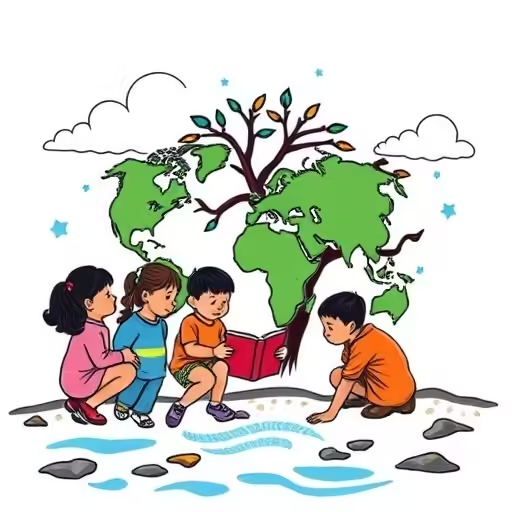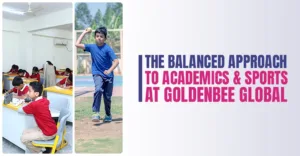
Climate change is one of the most pressing issues of our time, affecting every aspect of our lives, including education. As the planet warms, the frequency and intensity of extreme weather events increase, disrupting the education of millions of children worldwide. However, education also holds the key to addressing it change by equipping the next generation with the knowledge and skills needed to build a sustainable future.
The Impact of Climate Change on Education
It directly impacts education in several ways:
- Disruption of Schooling: Extreme weather events such as floods, hurricanes, and heatwaves can damage school infrastructure, leading to temporary or permanent school closures. For instance, rising temperatures and heatwaves have forced schools to close in countries like Pakistan and South Sudan, disrupting the education of millions of children.
- Health and Learning Environment: High temperatures and poor air quality can create unhealthy learning environments, affecting students’ ability to concentrate and perform well academically. Studies have shown that students perform worse on exams taken on hotter days.
- Psychological Impact: The stress and anxiety caused by climate-related disasters can affect students’ mental health, further hindering their ability to learn and thrive in school.
The Role of Education in Climate Change Mitigation
Education is a powerful tool in the fight against climate change. By integrating climate education into school curricula, we can raise awareness and foster a generation of environmentally conscious individuals. Here are some ways education can contribute to climate change mitigation:
- Climate Literacy: Teaching students about the science of climate change, its impacts, and the importance of sustainability can empower them to make informed decisions and take action. Programs like UNESCO’s Climate Change Education for Sustainable Development aim to increase climate literacy among young people.
- Promoting Sustainable Practices: Schools can serve as models for sustainability by implementing eco-friendly practices such as recycling, energy conservation, and the use of renewable energy sources. This not only reduces the school’s carbon footprint but also teaches students the importance of sustainable living.
- Encouraging Innovation: Education can inspire students to develop innovative solutions to environmental challenges. By fostering critical thinking and problem-solving skills, schools can help students become future leaders in sustainability and climate action.
- Community Engagement: Schools can engage with local communities to raise awareness about climate change and promote collective action. This can include organizing community clean-up events, tree planting drives, and workshops on sustainable practices.
Building Climate-Resilient Education Systems
To ensure that education systems can withstand the impacts of climate change, it is essential to invest in climate-resilient infrastructure and policies. This includes:
- Infrastructure Upgrades: Strengthening school buildings to withstand extreme weather events and ensuring they have adequate ventilation and cooling systems to cope with rising temperatures.
- Disaster Preparedness: Developing emergency response plans and training staff and students on how to respond to climate-related disasters can help minimize disruption and ensure the safety of everyone involved.
- Policy Integration: Integrating climate change adaptation and mitigation strategies into national education policies can help create a more resilient education system. This includes incorporating climate education into the curriculum and promoting sustainable practices at all levels of education.
Conclusion
Climate change poses significant challenges to education, but it also presents an opportunity to transform our education systems and prepare the next generation for a sustainable future. By integrating climate education into school curricula, promoting sustainable practices, and building climate-resilient education systems, we can empower young people to become agents of change in the fight against climate change. Together, we can create a brighter, more sustainable future for all. Learn more about how Goldenbee Global School is leading the way in climate education and sustainable practices.







